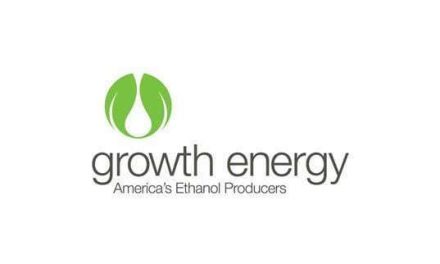U.S. Oil Balance Little Changed; More Bullish Overseas
- Total U.S. stocks fall modestly
- Propane stocks falling rapidly
- OECD stock situation tightening
- Natural gas sees large offtake
Sincerely, Alan Levine, Chairman of Powerhouse

The Matrix
Total stocks of commercial petroleum in the United States fell modestly (-2.0 million barrels) for the week ending January 13. The net decline largely reflected a substantial drop in propane supplies and a large gain in gasoline stocks. Refiners cut crude oil use 639,000 barrels daily.

The mix of bullish and bearish data held futures markets at bay. Futures prices ended daily trading little changed following release of the Energy Information Administration (EIA) numbers. Overall, these data support a view of domestic oil markets adequately supplied. There are nearly 29 days of gasoline supply in the system and 48 days of distillate fuel oil available as well.


This relatively benign view of American oil balances is in sharp contrast with growing expectations for a bullish 2017 overseas. The OPEC-non-OPEC agreement is being accepted as a done deal with high degrees of compliance expected. The analytical challenge for those evaluating the production data is the exceptionally high output recorded for late 2016.
OPEC reported output of 33.085 million barrels daily in December 2016. And this was down 221,000 barrels per day from November. As 2017 proceeds, reports of lower output will be measured against a high 2016 base, eroding the significance of reduced output.
One tailwind for the OPEC-non-OPEC agreement is the inventory situation in the Organisation for Economic Co-operation and Development (OECD). The International Energy Agency (IEA) reported that, in November, stocks were down 68 million barrels from their peak in July. Some analysts see the OECD market undersupplied even before OPEC supply cuts take effect.
Supply/Demand Balances
Supply/demand data in the United States for the week ending January 13, 2017, were released by the EIA.
Total commercial stocks of petroleum decreased 2.0 million barrels during the week ending January 13, 2017.
Builds were reported in stocks of gasoline, fuel ethanol and K-jet fuel. There were draws in stocks of distillates, residual fuel oil, propane and other oils.
Commercial crude oil supplies in the United States grew to 485.5 million barrels, an increase of 2.3 million barrels.
Crude oil supplies increased in four of the five PAD Districts. PADD 1 (East Coast) crude oil stocks expanded 1.3 million barrels, PADD 3 (Gulf Coast) stocks increased 0.8 million barrels, PADD 4 (Rockies) stocks grew 0.2 million barrels and PADD 5 (West Coast) stocks were up 0.3 million barrels. PADD 2 (Midwest) crude oil stocks decreased 0.3 million barrels.
Cushing, Oklahoma, inventories decreased 1.2 million barrels from the previous report week to 65.7 million barrels.
Domestic crude oil production decreased 2,000 barrels daily to 8.944 million barrels per day.
Crude oil imports averaged 8.378 million barrels per day, a daily decrease of 674,000 million barrels. Exports fell 23,000 barrels daily to 704,000 barrels per day.
Refineries used 90.7% of capacity, a decrease of 2.9 percentage points from the previous report week.
Crude oil inputs to refineries decreased 639,000 barrels daily. There were 16.468 million barrels per day of crude oil run to facilities. Gross inputs, which include blending stocks, fell 548,000 barrels daily to 16.748 million barrels daily.
Total petroleum product inventories saw a decrease of 4.3 million barrels from the previous report week.
Gasoline stocks expanded 6.0 million barrels; total stocks are 246.4 million barrels.
Demand for gasoline decreased 401,000 barrels per day to 8.069 million barrels daily.
Total product demand increased 2.096 barrels daily to 20.702 million barrels per day.
Distillate fuel oil supply decreased 1.0 million barrels; total stocks are 169.1 million barrels. National distillate demand was reported at 4.095 million barrels per day during the report week. This was a weekly increase of 897,000 barrels daily.
Propane stocks fell 7.4 million barrels to 72.2 million barrels. Current demand is estimated at 1.915 million barrels per day, an increase of 324,000 barrels daily from the previous report week.
Natural Gas
According to the EIA:
Colder-than-normal weather leads to another large net withdrawal. Net withdrawals from storage totaled 243 Bcf, compared with the five-year (2012 – 2016) average net withdrawal of 170 Bcf and last year’s net withdrawal of 175 Bcf during the same week. Working natural gas stocks total 2,917 Bcf, which is 77 Bcf below the five-year average and 431 Bcf below last year at this time.
This week’s storage withdrawal marks the third time that weekly net withdrawals have topped the 200 Bcf mark during the 2016 – 2017 heating season. The substantial storage draw is related to a combination of cold weather, increased capacity for natural gas-fired electric generation, reduced natural gas production relative to last year, and increased natural gas export volumes.
Futures trading involves significant risk and is not suitable for everyone. Transactions in securities futures, commodity and index futures and options on future markets carry a high degree of risk. The amount of initial margin is small relative to the value of the futures contract, meaning that transactions are heavily “leveraged.” A relatively small market movement will have a proportionately larger impact on the funds you have deposited or will have to deposit—this may work against you as well as for you. You may sustain a total loss of initial margin funds and any additional funds deposited with the clearing firm to maintain your position. If the market moves against your position or margin levels are increased, you may be called upon to pay substantial additional funds on short notice to maintain your position. If you fail to comply with a request for additional funds within the time prescribed, your position may be liquidated at a loss and you will be liable for any resulting deficit. Past performance may not be indicative of future results. This is not an offer to invest in any investment program.
Powerhouse is a registered affiliate of Coquest, Inc.
Was this helpful? We’d like your feedback.
Please respond to [email protected].
Copyright © 2017 Powerhouse, All rights reserved










